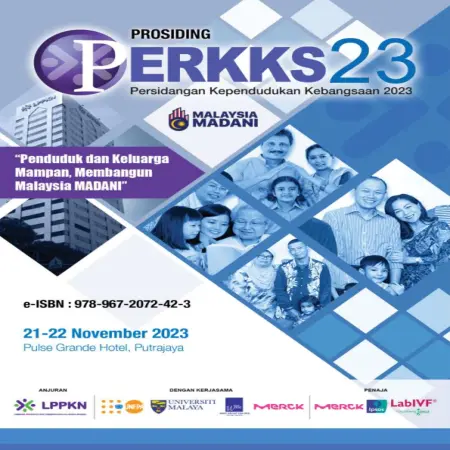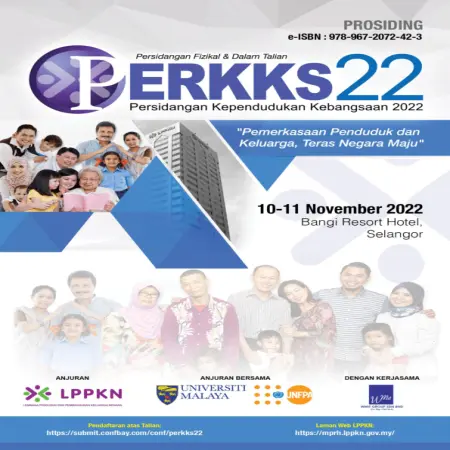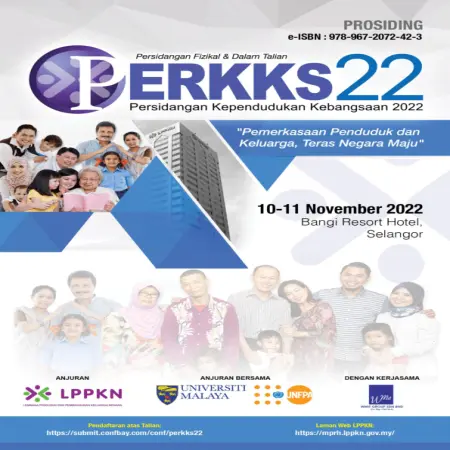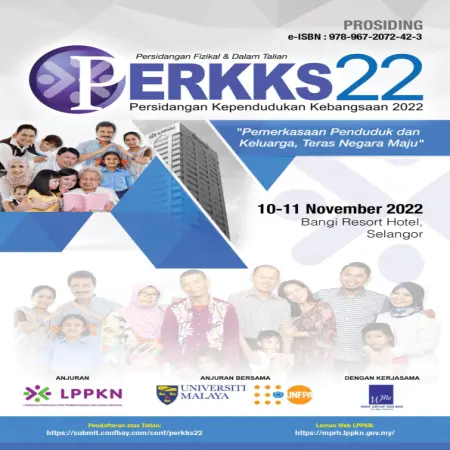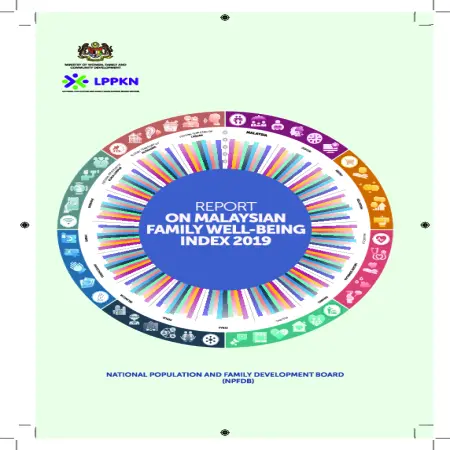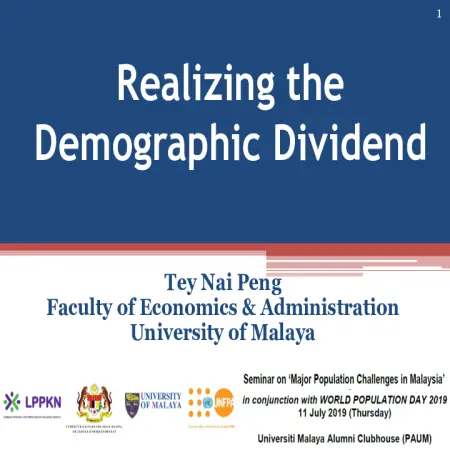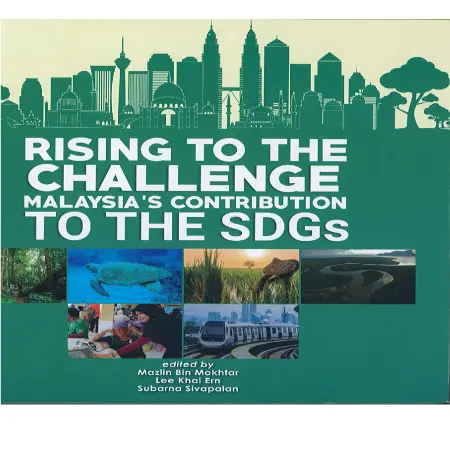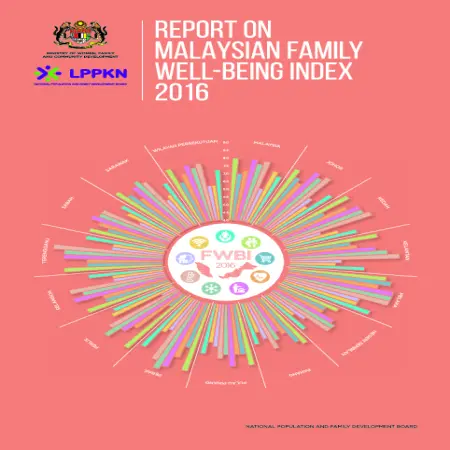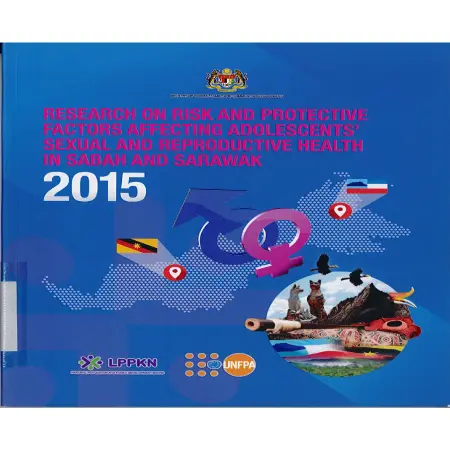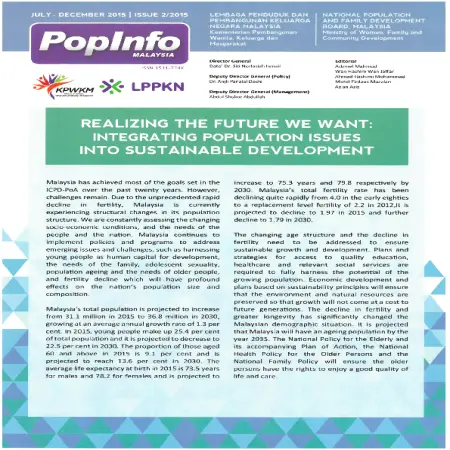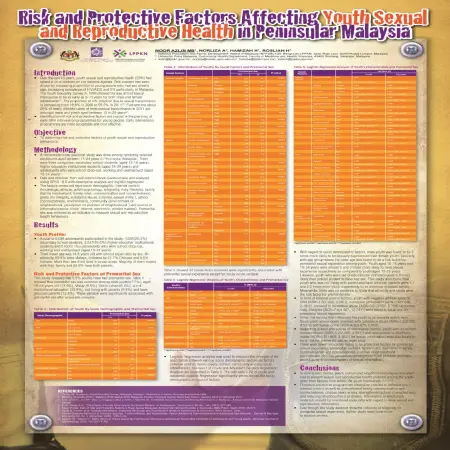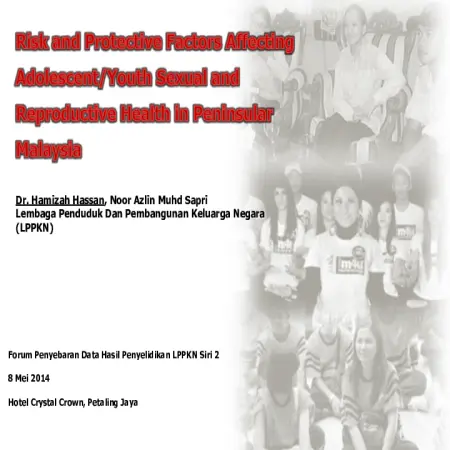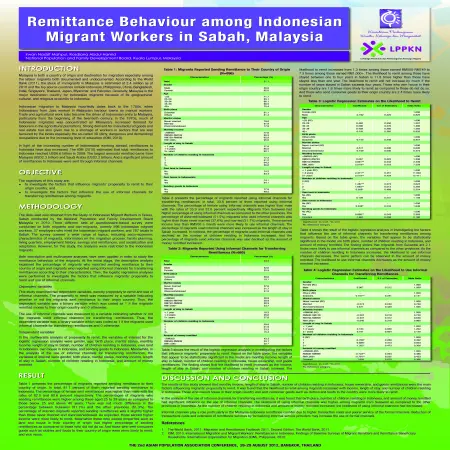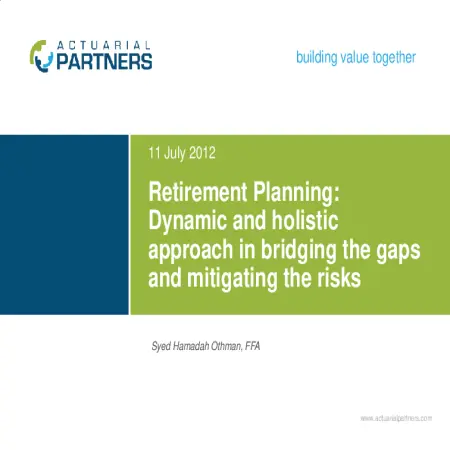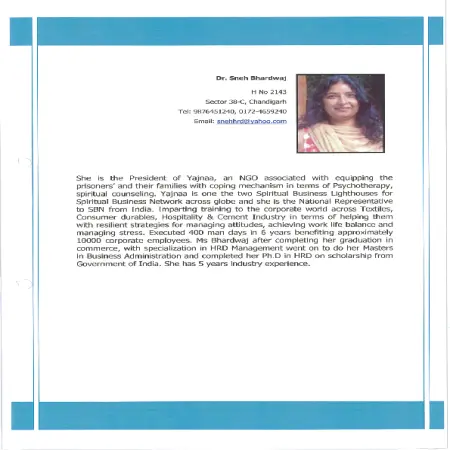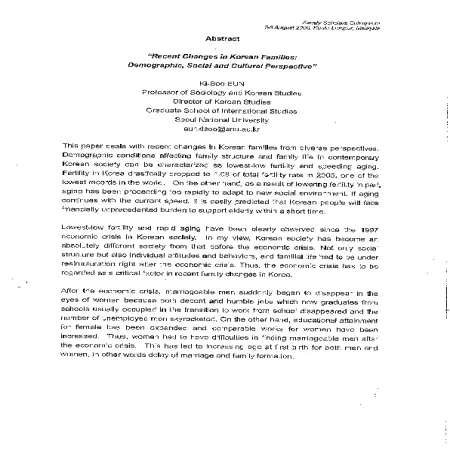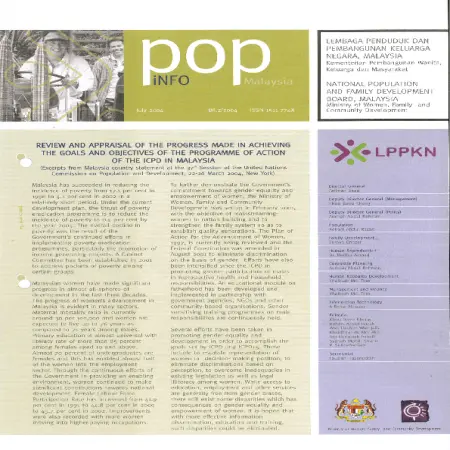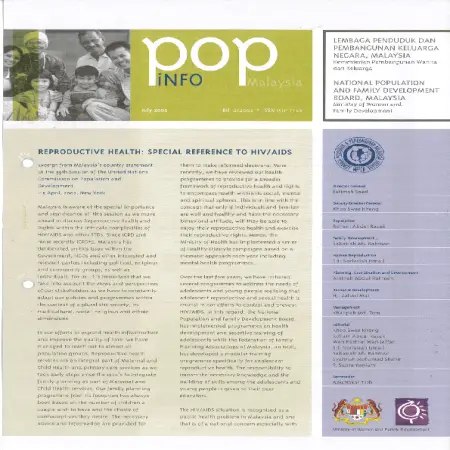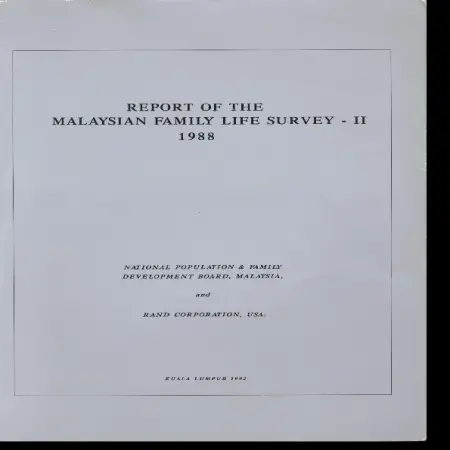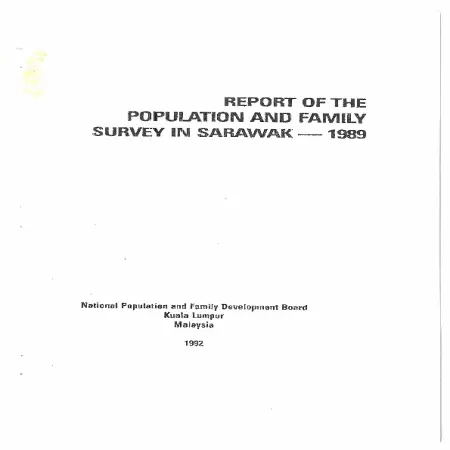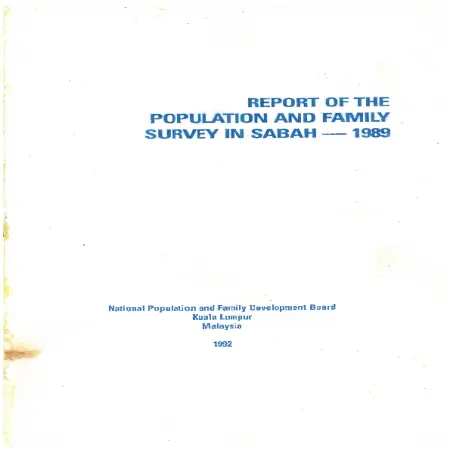Browse by Type
2024 (1)
2023 (1)
|
Review on big data analytics in population research: methods and application
Item Type: Book Section
Editor:
Year: 2023
Abstract: This exploration delves into the transformative influence of big data analytics on population research, encompassing methodologies, tools, applications, challenges, and their chronological distribution. It scrutinizes the digital era's impact on the field and the emergence of novel...[Read More]
|
|
|
|
|
2022 (3)
|
Reka bentuk aplikasi saringan mental sihat remaja
Item Type: Book Section
Editor:
Year: 2022
Abstract: Mental health is one of the most important aspects that must be met by every individual to achieve optimal health in addition to physical and social well-being. An increase in mental health-related problems can be seen every year and puts pressure on the daily life of patients among...[Read More]
|
|
|
|
|
|
Redefining quality interpersonal communication in marriage from divorcees’ perspectives
Item Type: Book Section
Editor:
Year: 2022
Abstract: Quality interpersonal communication is essential in the development and maintenance of any relationship, including marriage. As society adapts to new avenues of communication, married couples often underestimate the relevance of interpersonal communication in their relationship due to...[Read More]
|
|
|
|
|
|
Relationship between family functioning, resilience and psychological well-being among B40 youths in the Klang Valley district
Item Type: Book Section
Editor:
Year: 2022
Abstract: Global economic uncertainties in the COVID-19 era have had an adverse impact on many households across nations, including Malaysian households. In particular, the B40 households have seen an upsurge in the cost of living, which puts a strain on their purchasing power. The Malaysian...[Read More]
|
|
|
|
|
2021 (1)
|
Regulating retirement village in Malaysia; the way forward
Item Type: Article
Year: 2021
Abstract: As Malaysia is predicted to be an ageing nation by the year 2030, developing a retirement village shall be an avenue for senior citizens to have a welfare and conducive placement for them to spend their time with value-added amenities that cater their special needs. This paper...[Read More]
|
|
|
|
|
2020 (1)
|
Report on Malaysia Family Well-Being Index 2019
Item Type: Research Report
Year: 2020
Abstract: The Family Well -Being Index (FWI) is a multi -dimensional benchmark specially developed to measure the level of family well -being in Malaysia. This index is generated through a mother’s or father’s assessment of their family’s well -being. The 2019 Malaysian Family Well -Being Index...[Read More]
|
|
|
|
|
2019 (1)
|
Realising the demographic dividend
Item Type: Conference or Workshop Item
Year: 2019
Abstract: Malaysia has done well in harnessing the demographic dividend through pragmatic planning and management, and investment in health and education. It is ranked among the very high Human Development index country (from 63 to 57). Achieved almost all the goals of ICPD (1994-2014) and MDGs (2000-2015).
|
|
|
|
|
2018 (1)
|
Relationship between family functioning, parenting behaviour, self-efficacy, and gender on risky behaviour amongst adolescents in Kuala Lumpur, Malaysia
Item Type: Thesis
Year: 2018
Abstract: Adolescence is the developmental period marked by a rise in risk-taking behaviours. The high rate of adolescents’ involvement in risky behaviours in the past decades has created a vast amount of attention on the impact to their future. In Malaysia, the impact of risky behaviour has...[Read More]
|
|
|
|
|
2017 (2)
|
Reproductive and social health education
Item Type: Book Section
Editor:
Year: 2017
Abstract: On 6th December 2009, the Cabinet approved the PEKERTI Policy & Action Plan proposed by Ministry of Women, Family and Community Development (MWFCD), which aims to guide young people from getting involved in social problems.
|
|
|
|
|
|
Report on Malaysian Family Well-Being Index 2016
Item Type: Research Report
Year: 2017
Abstract: The NPFDB (2011) defined family well-being as a safe, healthy, comfortable, harmonious and satisfying family condition. This definition covers various aspects, such as spiritual satisfaction and comfort in respect of their economy and finance; mental, psychosocial, and health;...[Read More]
|
|
|
|
|
2016 (2)
|
Report on key findings Fifth Malaysian Population and Family survey (MPFS-5) 2014
Item Type: Research Report
Year: 2016
Abstract: The 2014 Malaysian Population and Family Survey is the fifth in a series of surveys conducted by the NPFDB every 10 years since 1974. This fifth survey was funded by the Economic Planning Unit of the Prime Minister’s Department under the 10th Malaysia Plan allocation. In conducting the...[Read More]
|
|
|
|
|
|
Research on risk and protective factors affecting adolescents' sexual and reproductive health in Sabah & Sarawak 2015
Item Type: Research Report
Year: 2016
Abstract: A quarter of the world population (1.8 billion) consists of people aged 10-24 years (UN DESA, 2009). Adolescents is a phase of life whereby they have opportunities for developing healthy behaviours, which can determine the future pattern of adulth health. However, for most adolescents,...[Read More]
|
|
|
|
|
2015 (1)
|
Realizing the future we want: integrating population issues into sustainable development
Item Type: Newsletter
Editor:
Year: 2015
Abstract: Malaysia is closely monitoring the developments and discussion on the post-2015 development agenda. Malaysia believes that the post-2015 development agenda should integrate existing international commitments and outcomes of UN conferences and deliver on equality, social inclusion,...[Read More]
|
|
|
|
|
2014 (2)
|
Risk and protective factors affecting youth sexual and reproductive health in Peninsular Malaysia
Item Type: Scientific Poster
Year: 2014
Abstract: Over the last 10 years, youth sexual and reproductive health (SRH) had raised a lot of concern on the national agenda. This concern has been driven by increasing proportion of young people who had sex at early age, increasing prevalence of HIV/AIDS and STI particularly in Malaysia.
|
|
|
|
|
|
Risk and protective factors affecting adolescent youth sexual and reproductive health in Peninsular Malaysia
Item Type: Conference or Workshop Item
Year: 2014
Abstract: This study shows that over the last 10 years, youth sexual and reproductive health (SRH) had raised a lot of concern on the national agenda. According to the statistics, age at first sexual intercourse to be as early as 9-10 years for both male and female adolescents (The Youth...[Read More]
|
|
|
|
|
2012 (2)
|
Remittance behaviour among Indonesian migrant workers in Sabah, Malaysia
Item Type: Scientific Poster
Year: 2012
Abstract: Malaysia is both a country of origin and destination for migration especially among the labour migrants both documented and undocumented. According to The World Bank's Migration and Remittances Factbook 2011, the stock of immigrants in Malaysia is estimated at 2.4 million as at 2010...[Read More]
|
|
|
|
|
|
Retirement planning: Dynamic and holistic approach in bridging the gaps and mitigating the risks
Item Type: Conference or Workshop Item
Year: 2012
Abstract: Most of us will one day row old and frail. Some will be fortunate enough to be endowed with wealth and good health in retirement years. But others in fact many of us, some call it the 99% group, will not be so fortune. We may have wealth but not health. We may be healthy but not...[Read More]
|
|
|
|
|
2009 (1)
|
Resilient families coping with sudden demise husband: an exploratory and empirical study of 50 nuclear urban middle class families in North India
Item Type: Conference or Workshop Item
Year: 2009
Abstract: The paper offers research based Resilient Indian Family Template' culled from the coping practices adopted by 50 Nuclear Urban Middle Class Families in North India in the eventuality of sudden loss of husband. Convenient random sampling technique of data collection was employed for...[Read More]
|
|
|
|
|
2006 (1)
|
Recent changes in Korean families: demographic, social and cultural perspective
Item Type: Conference or Workshop Item
Year: 2006
Abstract: This paper deals with recent changes in Korean families from diverse perspectives. Demographic conditions affecting family structure and family life in contemporary Korean society can be characterized as lowest-low fertility and speeding aging. Fertility in Korea drastically dropped to...[Read More]
|
|
|
|
|
2004 (1)
|
Review and appraisal of the progress made in achieving the goals and objectives of the programme of action of the ICPD in Malaysia
Item Type: Newsletter
Editor:
Year: 2004
Abstract: The role of the civil society organisations and non-government organisations as partners in the implementation of population programmes has been recognised and supported in Malaysia. Their involvement, participation, sharing resources and consultation have been pivotal to the sucess of...[Read More]
|
|
|
|
|
2002 (1)
|
Reproductive health: special reference to HIV/AIDS
Item Type: Newsletter
Editor:
Year: 2002
Abstract: The HIV/AIDS situation is recognised as a public health problem in Malaysia and one that is of a national concern especially with regard to the spread of HIV / AIDS among young people and to newborns through mother-to-child transmission. Since the first case of AIDS was reported in...[Read More]
|
|
|
|
|
1992 (3)
|
Report of the Malaysian Family Life Survey-II 1988
Item Type: Research Report
Year: 1992
Abstract: MFLS-2 was, in part, a follow-up to the original Malaysian Family Life Survey, fielded in 1976-1977, reinterviewing original respondents and their adult children, plus interviewing a new group of women age 18-49 in 1988. The information that is collected are household-level...[Read More]
|
|
|
|
|
|
Report of the Population and Family Survey in Sarawak - 1989
Item Type: Research Report
Year: 1992
Abstract: The main objective of the Population and Family Survey in Sarawak was to provide necessary data for the formulation, implementation and evaluation of population and family development programmes, in line with national objectives. Specifically, the survey was conducted to collect...[Read More]
|
|
|
|
|
|
Report of The Population and Family Survey in Sabah - 1989
Item Type: Research Report
Year: 1992
Abstract: The main objective of the survey was to provide necessary data for the formulation, implementation and evaluation of population and family development programmes, in line with national objectives. Specifically, the survey was conducted to collect information on socio-cultural...[Read More]
|
|
|
|
|






